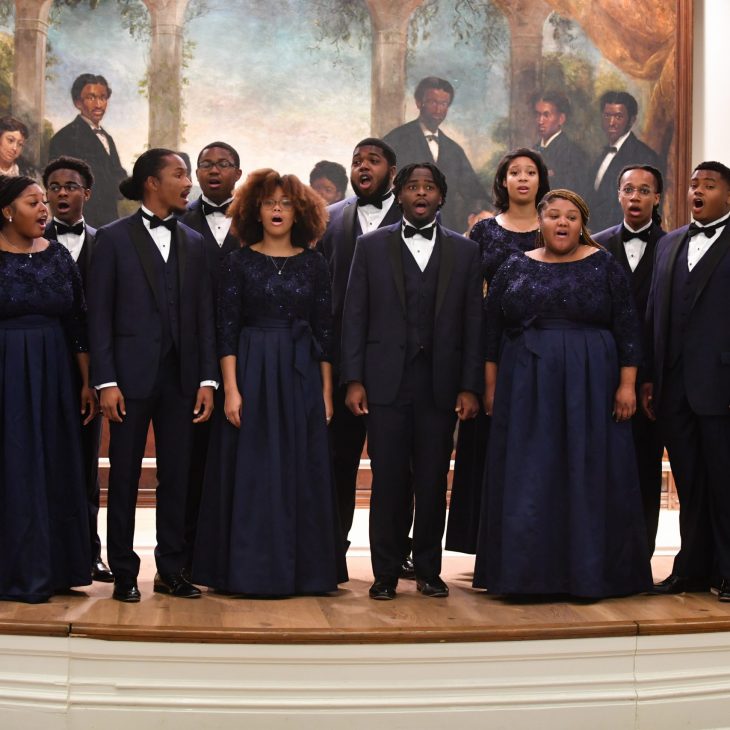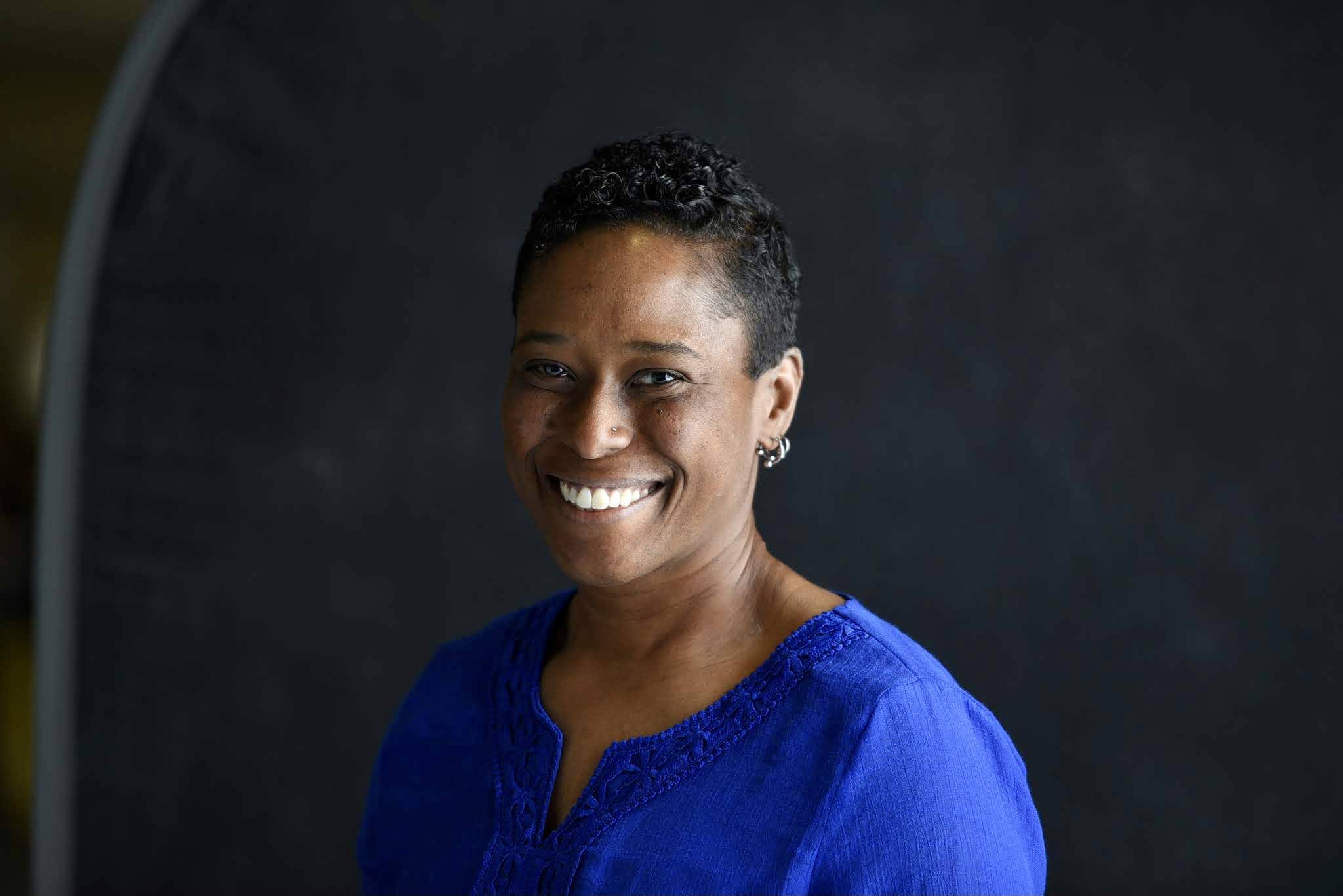This is the Moment: Jewish Story of Nachshon and the Legacy of Black Courage
February 9, 2023

In late January, I served as the Rabbi/Scholar in Residence for Shir Hadash, a Reconstructionist Jewish community in St. Louis. I mashed up the words of the prayer Mi Chamocha — “Who is Like You” — with words from the well-known Black spiritual “Wade in the Water” and sang them together. The Jewish prayer Mi Chamocha appears in Exodus 15 as part of the Song of the Sea.
The Israelites sang the Song of the Sea as they crossed the Red Sea to freedom. The song is a celebration of God and serves as a reminder of the role God played in the salvation of the Israelites. In the book of Exodus, the Israelites were enslaved in Mitzrayim (also known as the place of pain, the place of constriction and commonly translated as Egypt) for generations. They were suffering under the oppressive rule of Pharaoh. However, through the actions of Moses, Aaron, and God’s intervention, the Israelites are freed from bondage. As the Israelites escape with Pharaoh’s army in hot pursuit, they arrive at the shore of the Red Sea, where they are trapped and doomed to die. Many of us know the Exodus story that the waters of the sea parted, allowing the Israelites to cross the sea.
In the Jewish tradition, we have midrashim, plural for the Hebrew word midrash, which are commentaries, interpretations, or stories used to flush out a deeper meaning of the text or to explain some of the details left out in our biblical narratives. The story of Nachshon ben Aminadav is a midrash used to explain some of the events in the Torah about how the waters of the sea parted to allow the Israelites to cross the sea.
According to the story, the Israelites found themselves trapped at the edge of the Sea with Pharaoh’s army closing in. Moses told them that God would fight for them and save them, and to demonstrate faith, Nachshon stepped into the sea. When Nachshon was about to drown, Moses raised his staff, and the waters parted.
The Israelites crossed the sea and sang the Song of the Sea to celebrate God’s power and mercy. The spiritual “Wade in the Water” is a well-known Negro Spiritual that was used as a code to help escaped enslaved Black people navigate to freedom. The lyrics instruct listeners to “Wade in the water, God’s gonna trouble the water.” The song is also a metaphor for the courage and bravery required to escape slavery. Enslaved people had to risk their lives to cross bodies of Water to reach safety, and the Water also provided cover so that dogs could not track their scent.
Share
Related Articles
Fisk Jubilee Singers from Fisk University perform “Wade in the Water” in 2019 at the Grand Ole Opry House in Nashville, Tennessee.
As a Black person, I feel a powerful connection between the words in the Song of the Sea, particularly Mi Chamocha, the Nachshon story, and the spiritual “Wade in the Water”; they all express the bravery and resilience required for a journey of liberation. Nachshon stepped into the sea to demonstrate his faith in God and his belief in a better future, just as Black people used spirituals like “Wade in the Water” to show their faith in their ability to escape slavery and reach a better future. We can express our faith in a better future through concrete actions that bring about change, and it is only through bravery and resilience that people can overcome difficult obstacles and reach their goals; In other words, having faith in a better future is better than returning to slavery.
Black people fear police brutality in a way that white Americans will never understand. I know that soon, very soon, another Black person will be killed by police during a “routine traffic stop” even before the story of Tyre Nichols dies down. We can’t simply continue to stand by and do nothing, waiting for the next victim. We must take bold and decisive action to create and demand the system change. Demand that our elected officials make stronger laws to stop this ongoing violence committed by law enforcement and pass the George Floyd Justice in Policing Act.
It is time for us to step forward and make a real difference to create the world we want to see. This is the moment. This is the time to bring about the change we seek, to have faith in our ability to create a better future, and to act upon that faith with courage and bravery, just like Nachshon.

Rabbi Sandra Lawson
Rabbi Sandra Lawson is the Inaugural Director of Racial Diversity Equity and Inclusion at Reconstructing Judaism. The 2018 graduate of the Reconstructionist Rabbinical College is known for tackling difficult questions surrounding Jews and race. In 2020, the Forward named Lawson to its “Forward 50,” proclaiming her a “truth-teller,” and the Center for American Progress named Lawson to its list of Faith Leaders to Watch in 2022. Lawson also holds Bachelor of Arts and Master of Arts degrees in sociology. She lives in North Carolina with her wife Susan and three “fur babies”: Izzy, Bridget, and Simon.



